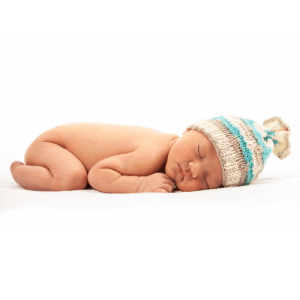
Distress, yelling, screaming, thrashing, and not receiving comfort? If these words describe episodes that your child is experiencing soon after falling asleep at bedtime, your child is likely experiencing what’s known as a night terror.
Night terrors are considered a parasomnia-a disorder characterized by the abnormal or unusual behavior of the nervous system during sleep.
Night terrors occur when a person gets stuck in a sleep/wake state while the nervous system is aroused.
It is believed that because night terrors happen during slow-wave sleep, dreams are less frequently recalled during this phase of sleep, thus a terror episode is rarely remembered by the person experiencing them.
Night terrors happen during the deep sleep phase; because there is more deep sleep during the first part of the night, night terrors will most commonly occur within a couple of hours of initial sleep time.
During night terrors, children will often not seem to recognize a parent or receive comfort from a parent. This is because the child is actually asleep, even if his/her eyes are open.
Nightmares normally happen during the later part of the night and the child is often able to recall the dream and are able to receive comfort after the dream.
Night terrors don’t normally begin happing before the age of one year and don’t frequently happen after the age of twelve.
Night terrors are no different than any other sleep disorder in that they are often triggered by the same factors – varying forms of stress:
If you look at this list and say, “my child doesn’t have any of those types of stress.” I want you to look more closely at the times your child goes to sleep vs. the times he/she shows signs of being tired, especially during the evening. If your child shows signs of being tired in the evening before lights are out, your child is sleep-deprived.
I encourage you to speak with your doctor regarding the night terrors, especially if they are happening multiple times in a week.
Do not wake the child experiencing the night terror. Waking a child who is experiencing a night terror will only cause the child to become confused and disoriented and will likely have a harder time falling back to sleep.
Do not try to hold or calm the child unless he/she is hurting him/herself. If you do attempt to intervene, you may get hurt yourself and become upset because your child is rejecting your comforting efforts.
Instead, stay at a safe distance and allow the episode to pass. A night terror will pass by itself within a few mins.
Because there is no active memory of the episode for the child, the night terror is more disturbing for the parent than anyone. So keep yourself calm and objective during a night terror episode.
Has your child ever experienced a night terror before? What was the cause of the night terror? What did you find resolved the night terror for your child?

Sleep

Sleep
